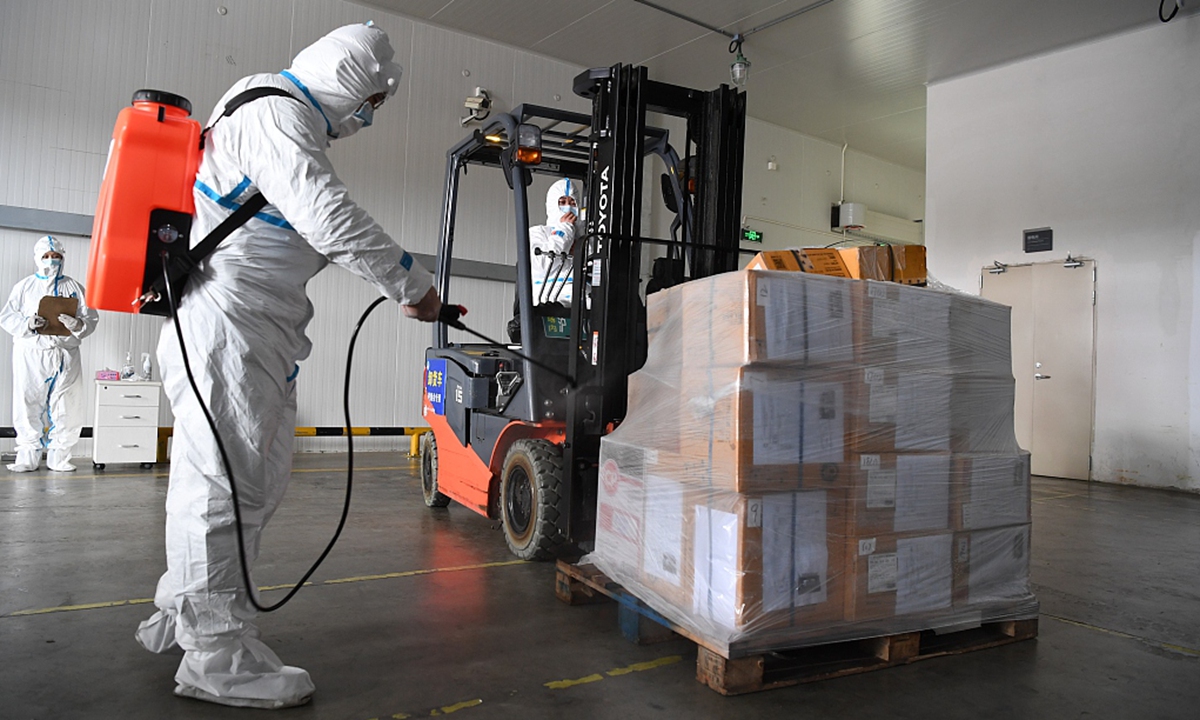China sets up traceability web, covers 90% of cold-chain food imports

cold chain Photo:VCG
China's State Administration for Market Regulation (SAMR) vowed to comprehensively promote the establishment of a traceability platform on imported cold-chain food in light of rising imported COVID-19 infections.
The SAMR, China's top market regulator, said it has set up a national database using regional data provided by nine provinces and cities that together account for over 90 percent of first-stop imports of cold-chain food, according to a statement posted on the SAMR's website on Wednesday.
The entire information chain of imported cold-chain food, from customs clearance and wholesale operations to retail and catering services providers, is basically covered by the database, and it has played a major role in effectively helping investigators in the online screening, precision management and on-site handling of coronavirus infections.
At a teleconference on Tuesday, the SAMR asked its regional-level departments to make digitalized traceability compulsory, ensuring that information is duly uploaded and complete to facilitate one-click tracking and enable instant trouble-spotting.
The regulator said that the risk of imported cases via cold-chain food logistics is continuously increasing due to the complex global epidemic control situation and increasing cross-border flows of people and goods.
The centralized database has solved the issue of "information silos" that prevent effective nationwide tracing of cold-chain imports.
The regulator urged its regional enforcement bodies to engage in a full screening on food importers, producers, wholesale markets, supermarket, fresh food markets and restaurants.
It ordered all self-built refrigerators and third-party freezer warehouses to file documentation with relevant authorities before year's end.
Food that hasn't undergone quarantine, disinfection, nucleic acid tests, and traceability information will be banned from sales, the SAMR said.
Regulators will also enhance the crackdown on imported cold-chain food lacking necessary paperwork.
Global Times